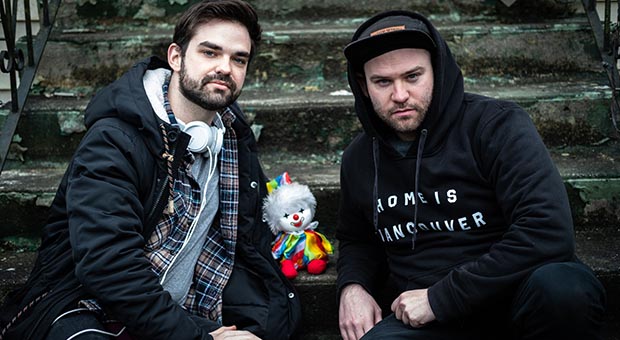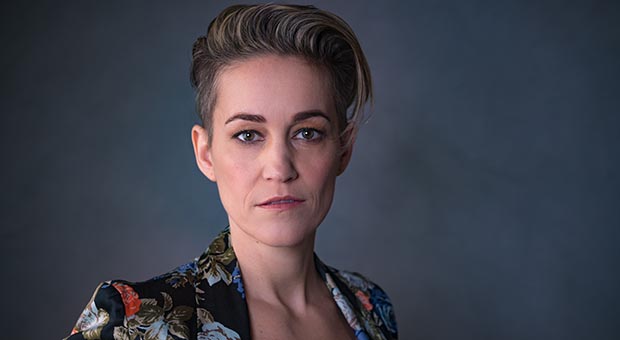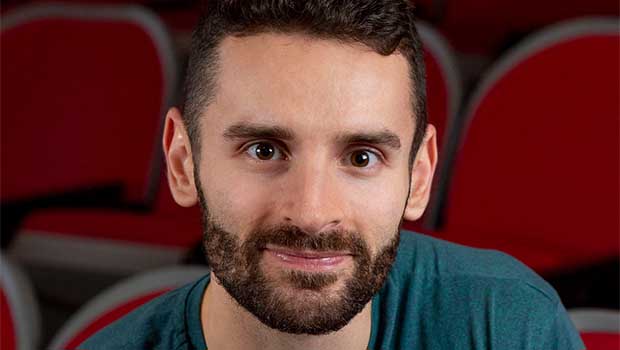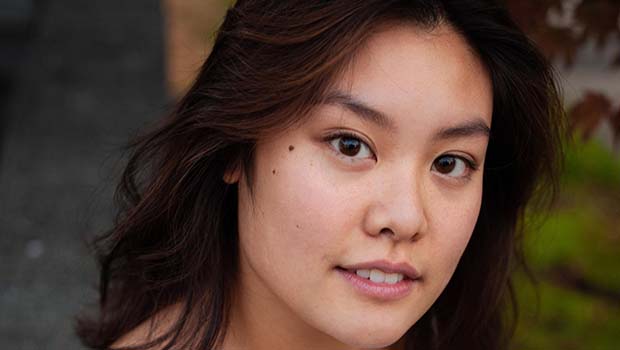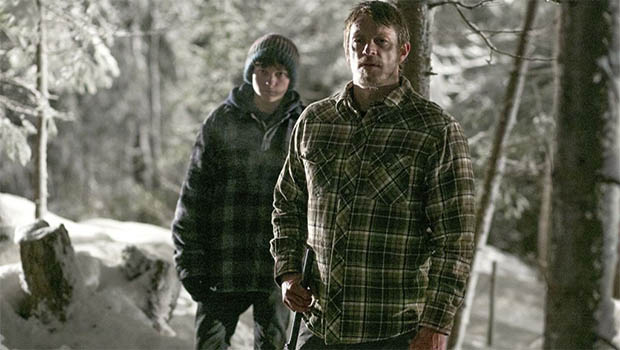
25 Aug The Biz Interview: Rob Connolly
Filmed in Sudbury, Ontario, Edge of Winter is a gripping drama that explores the complex relationship between two brothers and their difficult father against the backdrop of a deadly storm. Top-lined by Joel Kinnaman and Tom Holland, the film is also notable for being the feature film directing debut of Rob Connolly, an accomplished cinematographer and camera operator who won the BAFTA/LA Student Film Award for his 2009 short film, Our Neck of the Woods.
As Edge of Winter enjoys a theatrical release in select cities across North America and on iTunes and VOD, we spoke to Rob Connolly to find out more about the film and hear about the production from his perspective.
________________________________
Can you start by telling us a little bit more about you and Edge of Winter?
Kyle Mann, the producer and co-writer of the project, pitched the idea to me and I was immediately intrigued. I read his original version of the script and knew exactly what I would want to do with it if I were to come on board. We discussed focusing the story much more on the characters than on the thriller elements and wanted to really build up the internal struggle that Elliot was dealing with as a man who hasn’t gotten much right in his life and is now about to lose the one thing he has left. Kyle and I were working together on another project at the time and I kept telling him I thought this would be the perfect film for us to collaborate on so we started reworking the script until it became what it is today.
Can you briefly walk us through how the film came to be and what your creative process was like from the early days of production all the way to completion?
After working on the script together for about eight months or so, we were ready to go out to cast. Joel Kinnaman was really our ideal choice to play Elliot but we weren’t sure how open he would be to the idea of playing a father who puts his kids in danger. We sent him the script and he immediately connected to Elliot’s struggle and we met two days later and he signed on to the project that night. From there, was a very collaborative process where Joel and I would discuss specifics about his character and really hone in on a diagnosis for what is going on with him internally. Once we started shooting, most of that character work had been done and it was just a matter of battling the elements. Throughout the shoot, the weather was by far the most unpredictable part of the process but as long as we were able to shoot, we knew we were able to rely on great performances.
What should audiences expect from the film?
Audiences should expect to see a father trying his best to do what’s right for his kids. This is a man who isn’t really equipped with the necessary skills it takes to be a great, nurturing father, but he is determined to do what he thinks is best for his kids. Elliot doesn’t have great instincts and therefore relies on classic examples of how fathers and sons are meant to bond. He makes one short-sighted decision after another that lead the family, little by little, further away from safety and by the time the realize how far they’ve gone, it’s too late.
What was your biggest challenge in making the film and how did you deal with it?
The biggest challenge was absolutely the weather. We knew it was going to be unpredictable but adapting to the constant chang in weather was much more difficult than we could have imagined. We obviously needed extreme weather and extreme cold which is what led us to shoot in Sudbury, Ontario in the first place. Throughout our pre-production, the weather was consistently 40-50 below zero with ample snow but as soon as we started shooting, the temperatures rose to around 5 degrees and all of the snow began to melt. By the second week, we were having to bring in dump trucks full of snow and spread it around so it would match. Just when we got used to that, a blizzard came in on our last day and changed the landscape completely.
From your perspective, how would you describe the current state of the Canadian film industry and how can it be improved?
There are some really great projects coming out of Canada these days and there are so many incredible resources available to develop a wide variety of films. I’m most excited about the unique potential the Canadian film industry has to take chances with storytelling and create an identity all its own. There is an opportunity here to really explore the possibilities of style and story that often have a tough time getting made in the more traditional, tentpole-driven Hollywood system.
What would your advice be to aspiring writers and directors?
The best advice I can give is to keep creating content. Short films are a great way to cut your teeth and build a reel but the jump to features is a tricky one to maneuver. A short film, no matter how good it is or how many awards it has won, is a great calling card but it can be incredibly difficult to use a 10-15 minute movie to convince financiers that they can trust you with the amount of money needed to pull of a feature. This is where relationships matter. Having producers who you know and who will fight for you are invaluable. Unless you are able to come up with a budget on your own, it is all about fostering those relationships and building trust so that when the right project comes along, you have a team willing to go to bat for you. That being said, nothing will happen without a script. The more you write, the more likely you are to have a product that someone will want to make. Amazing scripts won’t most likely fall into your lap unless you write them yourself. There are too many people with proven track records that will typically get those opportunities first, so it really is up to you to create the content that you want to make.
What books and authors have been influential to you in your career so far?
My love of reading started with plays (mostly because they were shorter and easier to digest for school book reports). Somehow through that initial laziness, I became hooked. Early major influences on me were Tom Stoppard’s Rosencrantz and Guildenstern Are Dead, Thornton Wilder’s The Skin of Our Teeth, Edward Albee’s Who’s Afraid of Virginia Woolf?
Others include Geek Love by Katherine Dunn, John Irving, Tom Robbins, J.G. Ballard, Gary Shteyngart, and Joe Meno who wrote the short story my first short film was based on called Our Neck of the Woods.
________________________________
Thanks to Rob Connolly for speaking with us!
Edge of Winter is now playing in select theaters and it’s also available on iTunes and VOD.

